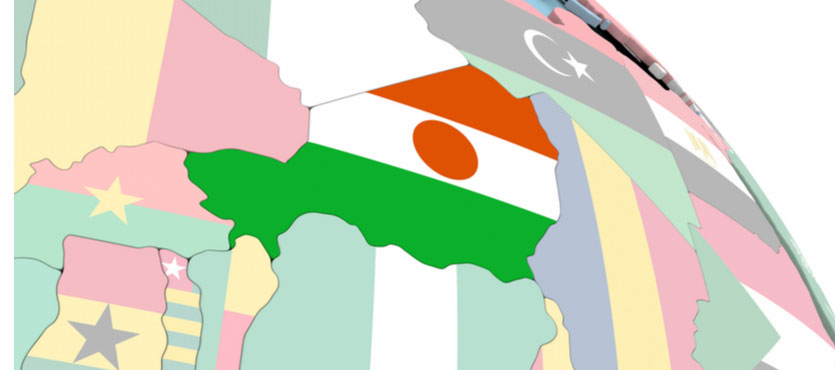Berry Aviation evacuated U.S. military casualties after ISIS-affiliated militants apparently ambushed a military convoy in Niger in October of 2017.
Pursuant to its contract with the U.S. Transportation Command, the Texas-based contractor maintains one helicopter and one propellor-driven plane in Niamey, Niger’s capitol, for “casualty evacuation” and “other things,” according to a U.S. Africa Command spokesperson. Details about the incident are still sketchy. Apparently, about a dozen U.S. soldiers accompanied about 30 Nigerien soldiers on what officials described as a “reconnaissance mission” that took them near the Niger-Mali border. As the convoy returned to base, an unknown number of militants attacked the column using machine guns, small arms, and rocket-propelled grenades. About an hour later, the troops requested air support, which came in the form of an American drone and several French helicopter gunships and Mirage jet fighters. Four U.S. servicemembers died in the firefight and two others were seriously wounded; the French and the contractor both transported these soldiers away from the battlefield.
There are a number of questions about the incident, including the communication (or lack thereof) between the French and Berry Aviation, the seemingly faulty intelligence about the lack of enemy activity in the area, and President Trump’s alleged insensitivity during a condolence call. Myesha Johnson claims the Commander in Chief was disrespectful and could not remember her husband’s name, accusations that the President has denied.
U.S. Operations in Niger
There are some preliminary questions as well, viz, where is Niger and why are U.S. troops there in the first place?
Niger is a sub-Saharan country in West Africa that, by most metrics, is one of the poorest and most underdeveloped in the world. That status, and the fact that large swaths of the country are essentially unoccupied, makes it a fertile ground for terrorist groups. This mostly Islamic nation has about twice the land area of Texas, yet it has significantly fewer people (21 million vs. 27 million) than the Lone Star State.
About 800 U.S. troops are in Niger, mostly in either combat support or intelligence roles. The Americans maintain an air base in Niger which they use to conduct drone reconnaissance in nearby countries, including Chad and Libya. In exchange, the U.S. trains and advises Nigerien soldiers in their fight against ISIS and Boko Haram, an ISIS-affiliated group.
Until the French arrived in 1900, Niger was part of several West African empires, including the sprawling Mali Empire which existed for almost 400 years. Like much of the former French West Africa, Niger has been independent since 1958 but retains close ties to its onetime colonial masters.
Why Contractors are Important
As they do in many other quasi-friendly nations (Niamey is willing to tolerate the presence of American troops as long as the Americans provide something in return), contractors fill several important practical and policy roles.
When it comes to training, people in other cultures do not always respond well to the same methods that American soldiers sometimes use stateside. Obviously, there is a language barrier, as well. Contractors can be much more specialized, as for example, a contractor could search for and employ a person with combat and training experience who also speaks French. Second, contractor mechanics are just as well-suited to work on drones and other aircraft as Army and Air Force mechanics, yet the total cost of a contractor is much lower than the cost of a servicemember. Finally, contractors allow U.S. officials to sooth nervous locals about troop figures because contractors do not count in the official tallies.
Overall, contractors are also much more flexible. When the immediate need ends, so does the contract.
Options for Injured Contractors
Injured servicemembers can turn to the Veterans Administration and Army medical facilities for treatment and care, but private contractors who are injured overseas obviously do not have access to these resources. That is why, since 1941, the Defense Base Act has been such an integral part of America’s overall armed forces policies.
The DBA is a federal worker’s compensation program which pays injured victims part of their lost wages. Persons with temporary disabilities usually receive two-thirds of their average weekly wage, calculated using:
- Regular compensation,
- Performance bonuses, and
- Non-cash benefits, such as housing allowance.
Victims who are permanently disabled can receive one-time payouts either in a lump sum or as an annuity, or life-time benefits.
Medical benefits are available, as well, generally beginning from the date of injury and extending until victims reach their Maximum Medical Improvement. If they are unable to return to work at that point, a lump-sum payment is usually available to offset the permanent nature of their injuries.
For more information about DBA procedure, contact Barnett, Lerner, Karsen & Frankel, PA.

